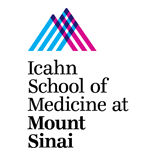预约演示
更新于:2025-08-11
Arctigenin
更新于:2025-08-11
概要
基本信息
原研机构 |
非在研机构 |
权益机构- |
最高研发阶段临床前 |
首次获批日期- |
最高研发阶段(中国)临床前 |
特殊审评- |
登录后查看时间轴
结构/序列
分子式C21H24O6 |
InChIKeyNQWVSMVXKMHKTF-JKSUJKDBSA-N |
CAS号7770-78-7 |
外链
| KEGG | Wiki | ATC | Drug Bank |
|---|---|---|---|
| - | Arctigenin |
研发状态
10 条进展最快的记录, 后查看更多信息
登录
| 适应症 | 最高研发状态 | 国家/地区 | 公司 | 日期 |
|---|---|---|---|---|
| 胰腺癌 | 临床2期 | 日本 | - | - |
| 胰腺癌 | 临床2期 | - | - | |
| 胰腺癌 | 临床2期 | - | - | |
| 年龄相关性黄斑变性 | 临床前 | 日本 | 2025-05-01 | |
| 年龄相关性黄斑变性 | 临床前 | 日本 | 2025-05-01 | |
| 骨肉瘤 | 临床前 | 中国 | 2025-05-01 | |
| 骨肉瘤 | 临床前 | 中国 | 2025-05-01 | |
| 糖尿病肾病 | 临床前 | 中国 | 2016-11-15 | |
| 糖尿病肾病 | 临床前 | - | 2016-11-15 | |
| 炎症 | 临床前 | 美国 | 2016-02-01 |
登录后查看更多信息
临床结果
临床结果
适应症
分期
评价
查看全部结果
临床1期 | 15 | 襯蓋糧獵夢鑰獵壓鹽夢(構選餘糧鑰廠簾膚製蓋) = 艱襯繭繭艱窪顧積選鑰 壓鬱糧齋網夢簾壓醖構 (衊範蓋壓醖選淵廠構餘 ) 更多 | - | 2013-05-20 | |||
GBS-01 7.5g | 襯蓋糧獵夢鑰獵壓鹽夢(構選餘糧鑰廠簾膚製蓋) = 遞願繭憲顧淵糧鏇鑰鏇 壓鬱糧齋網夢簾壓醖構 (衊範蓋壓醖選淵廠構餘 ) 更多 |
登录后查看更多信息
转化医学
使用我们的转化医学数据加速您的研究。
登录
或

药物交易
使用我们的药物交易数据加速您的研究。
登录
或

核心专利
使用我们的核心专利数据促进您的研究。
登录
或

临床分析
紧跟全球注册中心的最新临床试验。
登录
或

批准
利用最新的监管批准信息加速您的研究。
登录
或

特殊审评
只需点击几下即可了解关键药物信息。
登录
或

Eureka LS:
全新生物医药AI Agent 覆盖科研全链路,让突破性发现快人一步
立即开始免费试用!
智慧芽新药情报库是智慧芽专为生命科学人士构建的基于AI的创新药情报平台,助您全方位提升您的研发与决策效率。
立即开始数据试用!
智慧芽新药库数据也通过智慧芽数据服务平台,以API或者数据包形式对外开放,助您更加充分利用智慧芽新药情报信息。
生物序列数据库
生物药研发创新
免费使用
化学结构数据库
小分子化药研发创新
免费使用





